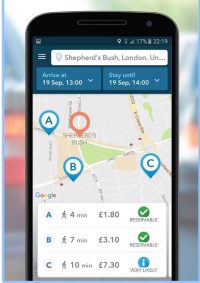White House plans to help with smart city projects
White House plans to help with smart city projects

After last year’s initial investment of $ 160 million, The White House has stated that it is placing an extra $ 80 million into technology and smart city projects.
A large portion of the funds will be used by the National Science Foundation. The NSF plans to spend $ 60 million on investments and grants for smart city projects during fiscal years 2016 and 2017, which will include high-risk projects, healthcare technology and data research.
See also: Human factors limit smart cities more so than technology
On top of this big announcement, The White House also discussed plans for the enlargement of the MetroLab Network, a group of partnerships between universities, local governments and research institutions, with focus on smart city efforts. The network has increased to about 40 cities and counties, since its original founding list of 20 cities. Several on this list have more than one research or academic partner.
New to the partnership list are the city of Los Angeles and California State University in Los Angeles, the University of Miami, Florida International University and Miami Dade College, Miami-Dade County, the cities of Miami and Miami Beach, the University of Pittsburgh, the city of San Francisco and the University of California in Berkley. The University of Pittsburgh is joining an existing partnership between Carnegie Mellon University and the city of Pittsburgh.
What White House initiative means for the future
The Southern California partnership will mostly focus on economic work that will help businesses owned by women and minorities to go digital, and help connect university entrepreneurs to civic issues they can fix. Meanwhile, the Florida contingent will be focused on issues dealing with climate change that pose a threat to the region in the coming decades.
The San Francisco partnership is primarily concerned with transportation for the moment, while the University of Pittsburgh will bring the Western Pennsylvania Regional Data Center into the current partnership in that region.
For those cities that want to become smart cities, The White House initiative will also be putting renewed energy into helping them. The National Institute of Standards and Technology plans to develop a framework for IoT-enabled smart cities that should be published by this summer. Along with this, The Center for Technology in Government at the University of Albany, and State University of New York plan to produce smart city guidebooks specifically designed for small and medium-sized cities.
This big announcement occurred at the same time as the Better Communities Alliance was launched. This Alliance focuses on working with local governments to help design solutions for renewable energy, transportation and energy efficiency.
The post White House plans to help with smart city projects appeared first on ReadWrite.
(7)














